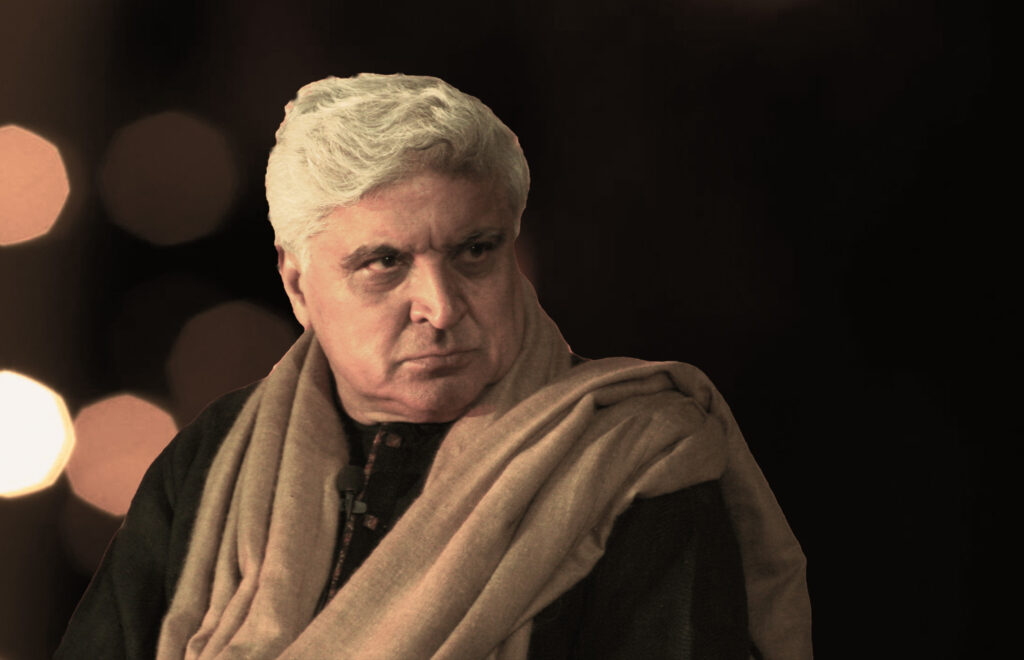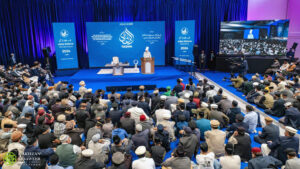ARTICLES
Opinions often surface branding the hijab as a symbol of oppression. Here, we respond to a recent Newslaundry article, challenging the narrative that Muslim women require ‘liberation’ from their choice to wear the veil.
If God is an epitome of love, why should we fear Him? The Ahmadiyya Khalifa explains the Islamic concept of righteousness, highlighting how true love inspires a fear of displeasing the beloved.
Islamic teachings provide essential principles for living in a society, addressing the political, social, economic, cultural, and religious aspects of human life.
Postpartum depression is a common yet often overlooked challenge that many new mothers face. Understanding its impact and finding effective coping strategies are essential for both maternal well-being and healthy parenting.
Ahmadiyya Khalifa explains the Islamic concept of religious evolution which occurred in parallel with the cognitive and social development of man.
While Akhtar blatantly characterises all religious people as mentally ill, his statements reveal that he is suffering from the very delusion he seeks to find in others.
Amidst the polarised debates that either advocate for or entirely reject abortion, Islam offers a balanced and logical perspective, respecting the rights of women and the sanctity of potential life.
Ahmadiyya Khalifa explains how important it is for parents, in today’s digital age, to monitor the programmes their children watch and ensure they do not have excessive screen time.
Contrary to the common belief that Adam(as) was forbidden to approach a physical tree, a study of the Quranic verses reveals that the command addressed a concept of much greater significance.
Atheists have long argued that the onus does not lie with them to disprove God’s existence. Here we examine if they are truly exempt from the rational burden of substantiating their beliefs.
Opinions often surface branding the hijab as a symbol of oppression. Here, we respond to a recent Newslaundry article, challenging the narrative that Muslim women require ‘liberation’ from their choice to wear the veil.
If God is an epitome of love, why should we fear Him? The Ahmadiyya Khalifa explains the Islamic concept of righteousness, highlighting how true love inspires a fear of displeasing the beloved.
Islamic teachings provide essential principles for living in a society, addressing the political, social, economic, cultural, and religious aspects of human life.
Postpartum depression is a common yet often overlooked challenge that many new mothers face. Understanding its impact and finding effective coping strategies are essential for both maternal well-being and healthy parenting.
Ahmadiyya Khalifa explains the Islamic concept of religious evolution which occurred in parallel with the cognitive and social development of man.
While Akhtar blatantly characterises all religious people as mentally ill, his statements reveal that he is suffering from the very delusion he seeks to find in others.
Amidst the polarised debates that either advocate for or entirely reject abortion, Islam offers a balanced and logical perspective, respecting the rights of women and the sanctity of potential life.
Ahmadiyya Khalifa explains how important it is for parents, in today’s digital age, to monitor the programmes their children watch and ensure they do not have excessive screen time.
Contrary to the common belief that Adam(as) was forbidden to approach a physical tree, a study of the Quranic verses reveals that the command addressed a concept of much greater significance.
Atheists have long argued that the onus does not lie with them to disprove God’s existence. Here we examine if they are truly exempt from the rational burden of substantiating their beliefs.













